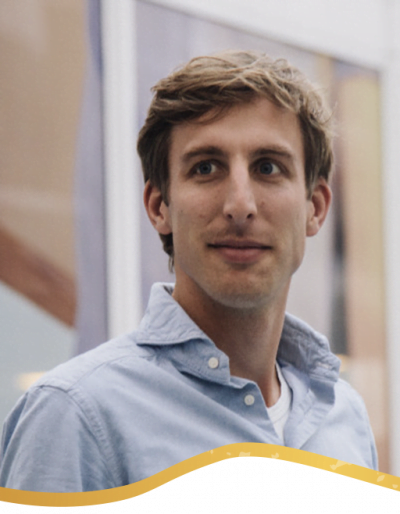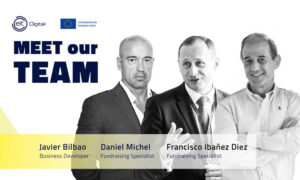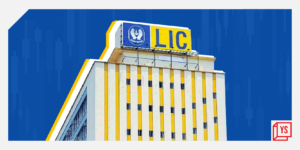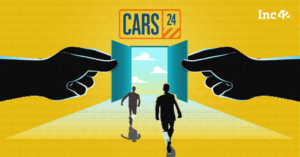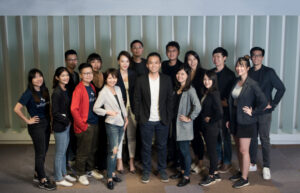Gone are the days when Amsterdam, the capital city of the Netherlands, was known only for its charming canal houses, tulips in full bloom, intricate canal system, vibrant art scene, beautiful architecture, and welcoming people. The city’s thriving startup ecosystem is making a big splash globally and is home to a growing number of unicorns.
According to a Dealroom report, Amsterdam’s tech ecosystem hit €100B in value (€187B if you include Booking), making it the third most valuable hub in Europe. The 2021 Global Startup Ecosystem Report, published by Startup Genome during the London Tech Week last year, says that the Amsterdam startup ecosystem “packs an increasingly big punch”.
 Meet the 20 EIT Digital finalists!
Meet the 20 EIT Digital finalists!
Get to know the amazing finalists here
As per this report, the overall value of the city’s startup ecosystem has been rising fast, over the last decade. The Startup Genome report reveals that startups founded since 2000 in the city have a combined value of more than $86B (approx €73.5B), up from just $12B (approx €10.2B) in 2015, the third-largest in Europe.
The large exits of $50M (approx €42.7M) or more have also grown at an impressive rate compared to other European hubs, says the report.
The Amsterdam startup scene in 2022
So, can this ecosystem keep this momentum going? What can we expect from the Amsterdam startup ecosystem in 2022?
In order to get a fair idea of how the ecosystem would perform this year, we reached out to 8 key stakeholders of the ecosystem — people with deep insights and knowledge about the ecosystem. Here’s what the experts tell us about the Amsterdam startup scene in 2022.
SC: Which sectors are poised for growth in Amsterdam in 2022, and why?
Yoram: First, impact-oriented startups have wind in their sails. The next generation of companies aiming to provide new sustainability solutions. Whilst these considerations are already high up on the political agenda and throughout news cycles, it also increasingly translates into investors’ renewed interest and support, not least thanks to the growing support of governments as facilitators and investors.
Second, science-based startups will also continue to gain traction. Some of Amsterdam’s next generation of unicorns could easily come from the region’s leading universities and research centres. Investors are increasingly looking on campus rather than in co-working spaces for the recipients of their next cheque… Or on Dealroom! Where spinouts, patents and university research are also easily trackable.
Last, Amsterdam is also still a leading fintech hub thanks to its strong history of financial innovation. Looking forward we expect to see Amsterdam play a key role in the future of green finance, next-generation fintech infrastructure and crypto adoption.
SC: What new startup/tech trends can the city expect to witness this year?
Yoram: A trend we’ve been observing for some time and is likely to continue in 2022 is: more data-driven approach by VCs, especially in early stage. Investors are increasingly looking at data for signs of growth and traction to find and engage with startups before the competition.
On a different note, the war for talent has never been fiercer. Amsterdam startups raised triple the levels of investment in 2021 as in 2020, and much of that will be deployed on hiring. As startups look to scale up at speed, there is both necessity and opportunity to think and hire more broadly. That means startups must create inclusive, flexible and remote-first working environments. Diversity and inclusion, as well as distributed teams, have been emerging topics of conversation in Amsterdam tech for the last couple of years, but this could become a business-critical focus in 2022 and beyond.
SC: Things that you would like to happen/change this year with respect to the Amsterdam startup ecosystem?
Yoram: Collaboration is the common denominator for any successful tech ecosystem and will determine the international leaders into the next decade. I would like to see Amsterdam’s ecosystem more closely connected to other hubs like London and Paris. Europe should start to feel like one ecosystem in 2022.
SC: If you had to pick an Amsterdam startup to watch out for in 2022, which startup would you choose and why?
Yoram: Overstory: Impact-driven, science-based and on a mission to improve decision-making about our natural resources with data-driven information. Something we can relate to at Dealroom!
SC: Which sectors are poised for growth in Amsterdam in 2022, and why?
Darya: Definitely AI and Quantum software: currently, there’s such a big activity around setting an infrastructure for these sectors. Our own ACE AI Lab, TTT.AI coalition, Lab42, Quantum Amsterdam, and many more! All these initiatives are aimed at creating a fertile ground for deep tech startups that incorporate these breakthrough research topics in their products/services.
SC: What new startup/tech trends can the city expect to witness this year?
Darya: We expect AI-based tech to continue its strong momentum and shift its focus from industry 4.0 more toward societal issues. This trend will help the city address its priority topics such as a fairer and resilient society, healthy world, and more efficient economy.
Knowledge institutions of Amsterdam are participating in this shift and supporting a new generation of impact entrepreneurs through ACE Incubator, VU StartHub, HvA’s 10k Incubator and many more initiatives. These innovation hubs help students/researchers access resources and develop skills that are needed in their startup journey.
SC: Things that you would like to happen/change this year with respect to the Amsterdam startup ecosystem?
Darya: We would like to see more knowledge institution<>startup<>city<>industry collaborations to expedite the adoption of innovation. In 2021, a wonderful example of such collaboration was with ACE and Amsterdam Smart Health, ACE AI Lab and healthcare providers worked on a number of challenges such as AI diagnostics and operation rooms logistics. As a result, we have a new AI diagnostics tool ready to be deployed in one of the leading hospitals in Amsterdam.
SC: If you had to pick an Amsterdam startup to watch out for in 2022, which startup would you choose and why?
Darya: I would closely follow Susphos because of its skilful team and groundbreaking technology, which allows the company to extract phosphorus from our wastewater.
I would also choose Photosynthetic because of its innovative approach toward microprinting that will trigger a new wave of innovations across different sectors.
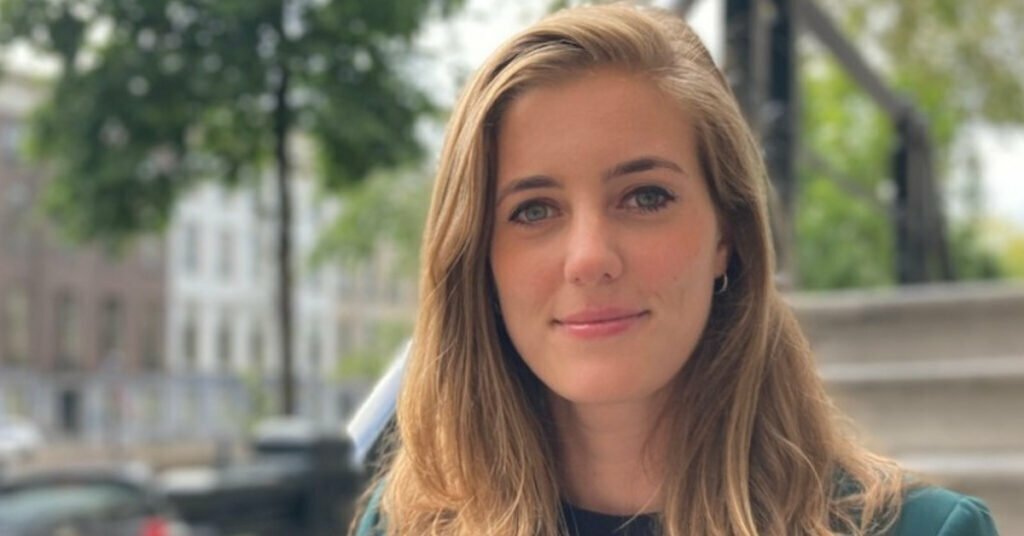
SC: Which sectors are poised for growth in Amsterdam in 2022, and why?
Emilie: Fintech boom! Climate technology on a rise, Health tech & Biotech (also due to increased funding and EMA operating from Amsterdam).
SC: What new startup/tech trends can the city expect to witness this year?
Emilie: Remote working. Less people in big offices, more international people working from Amsterdam and abroad. More smart mobility or sharing.
SC: Things that you would like to happen/change this year with respect to the Amsterdam startup ecosystem?
Emilie: There is a lot more funding around, so I hope we will witness a lot of Dutch scale-ups to scale quickly and successfully.
SC: Which sectors are poised for growth in Amsterdam in 2022, and why?
Thomas: Fintech is definitely ‘hot’. That was the case last year, with investments in companies like Mollie, Silverflow and Mambu, but I believe this trend will continue in 2022. Ex-employees of successful companies like Adyen and Mollie are now starting new companies or are angel investing into startups. They bring capital but also operational expertise that will help to bring forward the next generation of leading fintech companies. It’s a self-reinforcing effect: new success companies can build on the shoulders of previous ones. It would be even better if stock options for employees are stimulated more so they can actually financially benefit from success and pay-it-forward into future companies.
SC: What new startup/tech trends can the city expect to witness this year?
Thomas: The pandemic fuelled the remote working trend. I believe people will continue to work from home even if it’s ‘safe’ to go back to the office, at least for a couple of days per week. This has implications for startups, hubs and events. For Amsterdam-based startups, it is easier to get talent from anywhere – a software engineer from Groningen or a data scientist from Cape Town. Of course, they need to find a way to make it work for them. Especially in the early stage, it’s really important to have a lot of interactions with the founding team to make sure everyone is aligned.
Hubs will be more of a meeting point for founders and investors. People won’t be there all the time, so they should think about how to facilitate meaningful interactions to keep their added value. For events it can be harder to get people on location – people will now balance the value of in-person connections with travelling time and costs. In the short term I can imagine that everyone is eager to see each other again, but in the longer-term events need to have an appealing program and guest list to be relevant.
SC: Things that you would like to happen/change this year with respect to the Amsterdam startup ecosystem?
Thomas: Personally, I’m looking forward to more events to meet people in person. In the past two years I’ve facilitated more than 1,000 startup-investor meetings and many of these people I’ve never even met before. It would be really nice to see them in one of the many events in Amsterdam this year, for example at Amsterdam Capital House in March.
Second, it would be great to see some more effects of the efforts to create a more diverse tech ecosystem. We still have a long way to go but it makes so much sense. At Slush in Helsinki last year, I think at least one-third of the attendees, both founders and investors, were women. Amsterdam should be able to pull that off too, right? We’d like to contribute our fair share too – we plan to organise a StartupRoulette speeddate event dedicated to female founders in May and one edition dedicated to minority founders in July to make it easier for them to get in touch with relevant investors outside of their network.
SC: If you had to pick an Amsterdam startup to watch out for in 2022, which startup would you choose and why?
Thomas: It’s always hard to pick one company because I see so many talented founders, but I would keep my eye on The Fabricant. They design digital fashion for leading brands like Tommy Hilfiger and Adidas. I’m really excited about what they do. Apart from that, it looks super cool what they create, they also want to make the fashion supply chain much more sustainable. They plan to create a platform where people can design and trade digital fashion, for example via NFT’s. I wouldn’t be surprised if they raise another round of funding this year. Just look at their Instagram feed, it’s like you’re in another world!
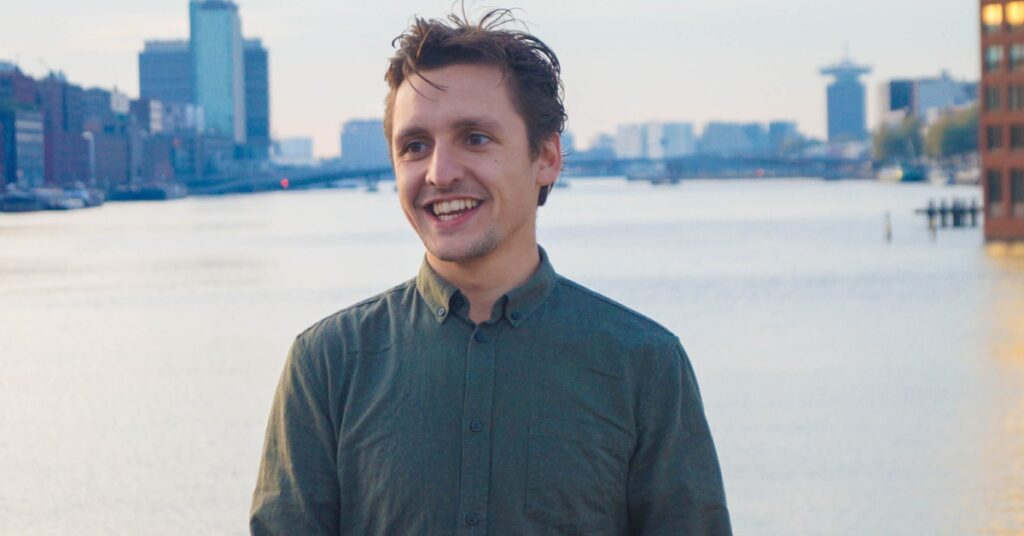
SC: Which healthtech segments are poised for growth in Amsterdam in 2022, and why?
Daan: Remote patient monitoring and care, Application of AI in healthcare, Image guided therapy
There is a lot of expertise and cooperation in these fields in the Amsterdam region and a lot of developments towards the growth of application. The explanation has been mentioned below in the response to Q2.
SC: What new healthtech trends can the city expect to witness this year?
Daan: The Covid-19 crisis has shown the importance of the availability of real-time data and data sharing within the health system. In Amsterdam, we have been working on the concept of a shared health data infrastructure for quite some years, but in 2022 this will enter a next exciting phase towards realization with the start of a quartermaster.
During Covid, we saw the rise of remote patient monitoring and care at a distance. An Amsterdam example is the collaboration between OLVG and Luscii at the beginning of the pandemic. This provided valuable insights for both hospitals and healthtech startups. On many levels, remote patient monitoring is being developed and I expect 2022 to be the year when it will be more generally accepted, and integrated into regular care, like in the Virtual Ward the OLVG has been developing together with home care organisations. The fact that people learned how to work virtually during the pandemic contributes positively to this development.
VC funding in healthtech will increase in 2022. This partially has to do with the demand for connected health data and the desire of people to take more control over their own health.
On all of the four health innovations districts in Amsterdam, interesting things will happen in 2022. To name a few examples:
- At the New West Health Innovation District Sanquin will transform 2000m2 to lab- and office space for biotech companies.
- At the Innovation District Zuidas they will start building ADORE, a center for combined oncology and neurology research, and the Innovation Center, for life sciences & health startups.
- At the Amsterdam Science Park Startup Village will start a program focused on Health & AI. That will provide great opportunities for starting entrepreneurs and startups in healthtech.
- At the Life Sciences & Health District the Amsterdam UMC is constructing a new Medical Business Park with communal lab facilities and offices where medical companies and research institutions can work and collaborate.
SC: Things that you would like to happen/change this year with respect to the Amsterdam healthtech scene?
Daan: That healthtech becomes more attractive for young (tech) talent to work in. It is a super interesting sector with lots of startups really aiming to transform the healthcare sector. You can use your skills ánd make an impact. And to become more creative in attracting this talent, like the Slotervaart plan to do with their recently opened Health Experience Centre.
Last year the healthtech sector was the fastest-growing tech sector in terms of jobs (in percentages). I hope to see this continue, so Amsterdam can live up to its position as the number 1 Life Sciences & Health hub in Europe.
Growing interest for sustainability in healthech, decarbonising of healthcare through renewable energy and efficiency. The Spaarne Gasthuis last month received an award for its activities in the field of sustainability.
SC: If you had to pick an Amsterdam healthtech startup to watch out for in 2022, which startup would you choose and why?
Daan: Startups like InBiome and Nostics have had great momentum during the pandemic due to their bacteria-detecting technologies. If they manage to optimally turn this in their favour, they have the potential to really change the sector. InBiome will open a showlab in the spring, that will also enhance their visibility for offering their technologies as a service but also as a concept.
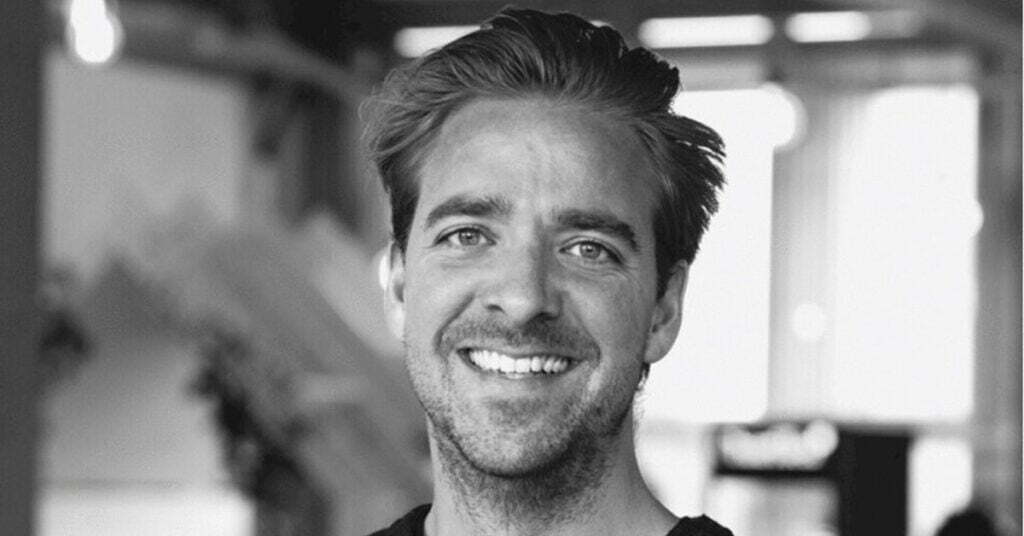
SC: What key edtech segments are poised for growth in Amsterdam in 2022, and why?
Peter: The key segments are:
- Upskilling (Workforce Transformation) – All reskilling & upskilling of the workforce population. Biggest needs, large group of people and easier to scale.
- Tutoring & Homework help – because of the impact of covid and learning disabilities. See example GOStudents.
- Learning content & resources – All new startups busy with new content creation.
SC: What new edtech trends can the city expect to witness this year?
Peter: The trends to expect are:
- Big push with the dutch government STAP budget (200m euro yearly) to help people with lifelong learning, where people get €1000 euro. So a bigger B2C push of companies who provide new and up to date courses to help people mainly in digital & data (tech), technical skills and skills in healthcare.
- More startups to help children and students who have a learning disability or disadvantage because of the impact of covid.
- More solutions for blended learning. And doing it right with a combination of live, on-demand, video and using the latest technologies.
SC: Things that you would like to happen/change this year with respect to the Amsterdam edtech scene?
Peter: Things that I would like to happen/change this year are:
- More collaboration with public and private initiatives for truly impactful edtech innovation for basic school, higher education, university and lifelong learning (adult education).
- More edtech investments for all stages. And a dedicated edtech VC with a clear industry focus on edtech only.
- More support for private academies who help with developing tech talent, which is essential and crucial to reach the scale of talent that is necessary for all companies to grow and scale.
SC: If you had to pick an Amsterdam edtech startup to watch out for in 2022, which startup would you choose and why?
Peter: FeedbackFruits, Pluvo, Chapter Works, Incision, Itorium.
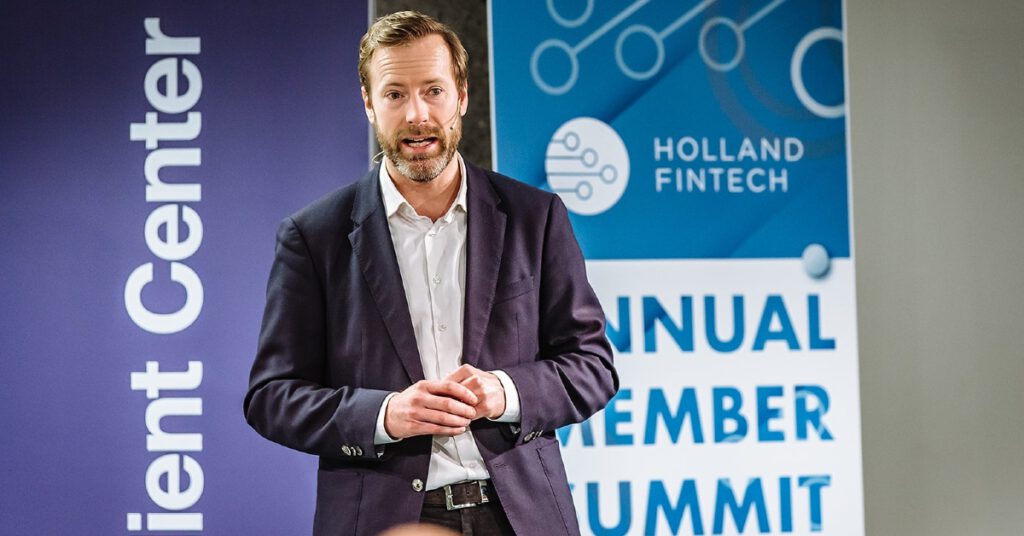
SC: What key fintech segments are poised for growth in Amsterdam in 2022, and why?
Don: Payments will remain strong, especially now that many ancillary services are boosting revenues. Think about Buy Now Pay Later, fraud prevention or merchant credit. We also still see an influx of companies from abroad seeking to be at the centre of European Payments… in Amsterdam.
Regtech is a strong field, while AML and KYC solutions are in very strong demand, due to the global fight against money laundering. Financial crime solutions, including cyber security, are also close to this domain and we expect the rise of the past years – in both threats and solutions – to continue.
Capital Markets and trading remain strong, especially after Amsterdam took over the leading role of London in early 2021. Retail trading is also strongly on the rise, but depends more on the sentiment in the markets.
Personal finance and wealth management are globally on the rise and I see some strong solutions in the Dutch market.
SC: What new fintech trends can the city expect to witness this year?
Don: I see a strong interest from field outside finance into fintech solutions. Many companies are beginning to see that there is much to gain from seamless global financial solutions, across all fields. That awareness is a gamechanger, that will spark many cross-industry collaborations. Within fintech that is often being addressed as embedded finance. It basically means that the financial service is moving towards the background of the customer experience, where he or she just gets access to the tools if needed, when needed.
Besides that, I see much spillover between fintech and social and environmental themes. There was already a strong drive with fintech companies to do good, but this year that’s exemplified by the new ESG taxonomy and Mifid reporting in the EU.
SC: Things that you would like to happen/change this year with respect to the Amsterdam fintech scene?
Don: Besides less Covid…? A stronger involvement of the public side would be great, as still many policies and regulations are hindering innovation. We need a strong public-private debate about the governance of data, privacy, use of AI, cryptocurrency and much more. Now the debate is polarised and the public and private sides speak a different language.
This would result in the Netherlands moving into an unfavourable position and will, in the end, just need to follow other countries – or the big tech companies – or Europe, without having a say in the end result. That is a pity from a governance perspective, but even more worrying is that we are also unable to keep our citizens and businesses safe in this changing environment; or let them benefit fully from the economic potential.
SC: If you had to pick an Amsterdam fintech startup to watch out for in 2022, which startup would you choose and why?
Don: I would never pick one. With around 300 organisations in our network, I see outstanding things happen across the board. But I would say that looking at the revision of PSD2 – the open banking regulation – open finance could get a good boost, making waves in many fields, but especially insurance and pensions are about to really see some impact. Although it might be hard to spot from the sideline…
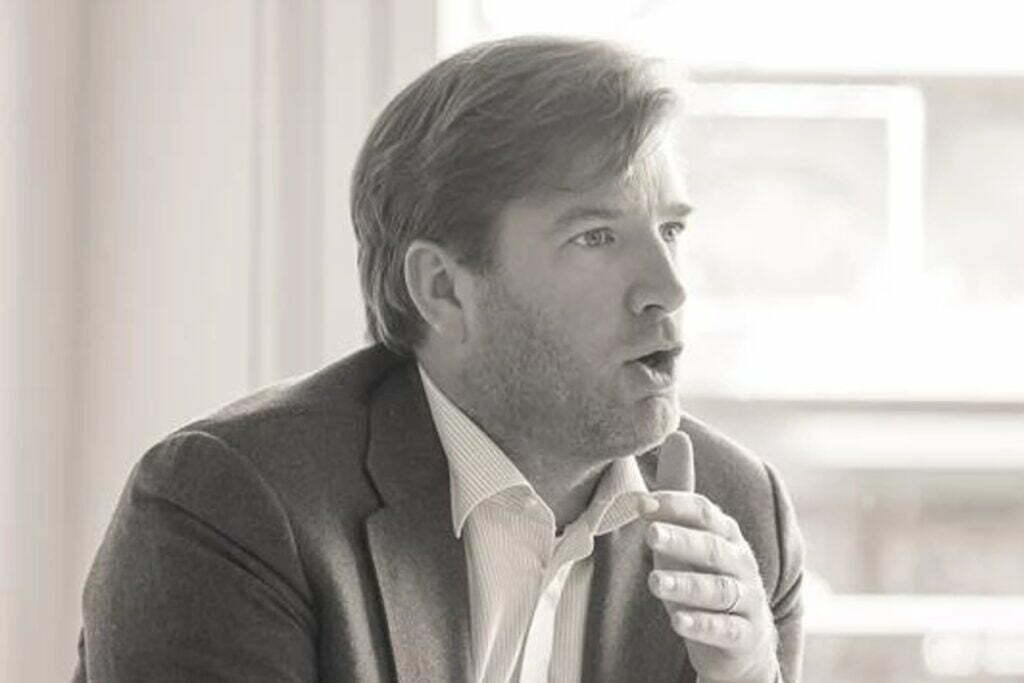
SC: What key fintech segments are poised for growth in Amsterdam in 2022, and why?
Radboud: The key segments are:
(a) Payments and related companies (e.g. AML, KYC), as strong ecosystem.
(b) Crypto Trading, also as strong infrastructure given IMC, Optiver and FlowTraders
(c) Marketplaces & Travel also given strong ecosystem and expertise given Booking, Prosus, EBay, etc.
SC: What new fintech trends can the city expect to witness this year?
Radboud: Increased focus of PSPs into value-added services as well as consolidation resulting in significant M&A
SC: Things that you would like to happen/change this year with respect to the Amsterdam fintech scene?
Radboud: Some more meaningful exits as there are many strong companies in the ecosystem, but they are overshadowed by the Adyen IPO.
SC: If you had to pick an Amsterdam fintech startup to watch out for in 2022, which startup would you choose and why?
Radboud: Fourthline — it has very strong KYC/Identity products that serve many bluechips resulting in very strong growth.
How partnering up with Salesforce helped him succeed!


